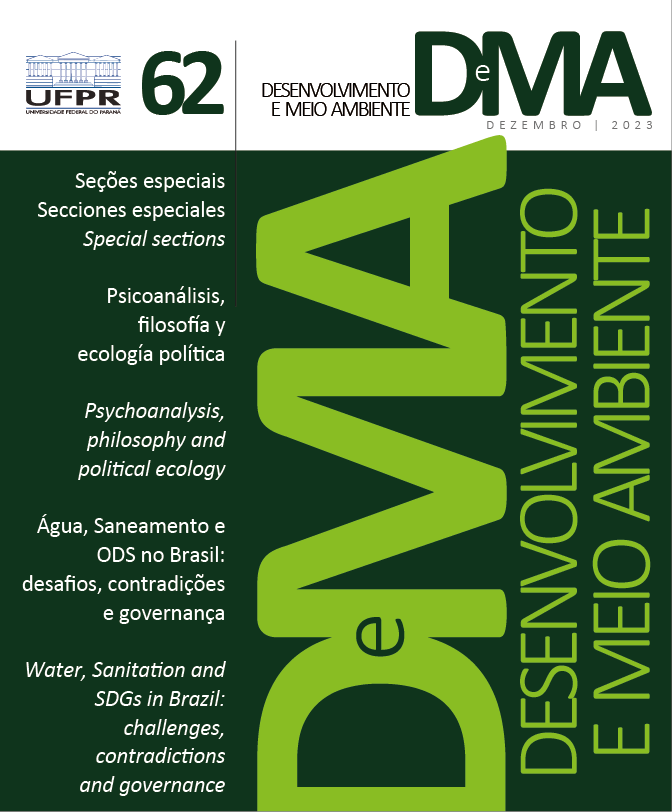The flower, the invention, the desire: towards a poetics of living
DOI:
https://doi.org/10.5380/dma.v62i0.85559Keywords:
Nature, Signifier, Drive, Capitalism, Poetics of LivingAbstract
The flower and the invention will function here as two metaphors to account, on the one hand, for the real of the physis that does not adhere to language and, on the other, for what exists with the crossing of the signifier, that is, history. Both metaphors, however, are far from being treated as complementary opposites, as a binary system or as a dialectic of which it is possible to synthesize. The proposal is to think them in terms of a paradoxical relationship. The paradoxes do not contain a solution, on the contrary, their function is to invite us to think the relationships free of meaning, inconclusive, open; making possible to find something that changes the perception we have of a topic, a problem, a question. Here the paradox of the flower and the invention will be read in the light of what happens as a failure to be, a failure that causes desire, understanding the latter as a pre-ontological trait that separates living beings from need and instinct. The second part of the proposal consists on exploring the ternary of the flower, the invention and the desire as a poetics of living in the face of the shortage caused by the capitalist discourse. Our conjecture is: if this poetics of dwelling has a future as existence, it is as an unprecedented act in the ways of having a place in the world, without exalting, therefore, a model of being, an ideal of life or a pedagogy of existence. In other words, noting contingent acts that, in “solitude: common” inscribe a contrast to know-how existential subversions in the face of those voracious practices of capitalist living, voracity motivated by the pure drive for destruction.
Downloads
Published
How to Cite
Issue
Section
License
Copyright on works published in this journal rests with the author, with first publication rights for the journal. The content of published works is the sole responsibility of the authors. DMA is an open access journal and has adopted the Creative Commons Attribution 4.0 Not Adapted (CC-BY) license since January 2023. Therefore, when published by this journal, articles are free to share (copy and redistribute the material in any medium or format for any purpose, even commercial) and adapt (remix, transform, and create from the material for any purpose, even commercial). You must give appropriate credit, provide a link to the license and indicate if changes have been made.
The contents published by DMA from v. 53, 2020 to v. 60, 2022 are protected by the Creative Commons Attribution-NonCommercial-NoDerivatives 4.0 International license.
DMA has been an open access journal since its creation, however, from v.1 of 2000 to v. 52 of 2019, the journal did not adopt a Creative Commons license and therefore the type of license is not indicated on the first page of the articles.




